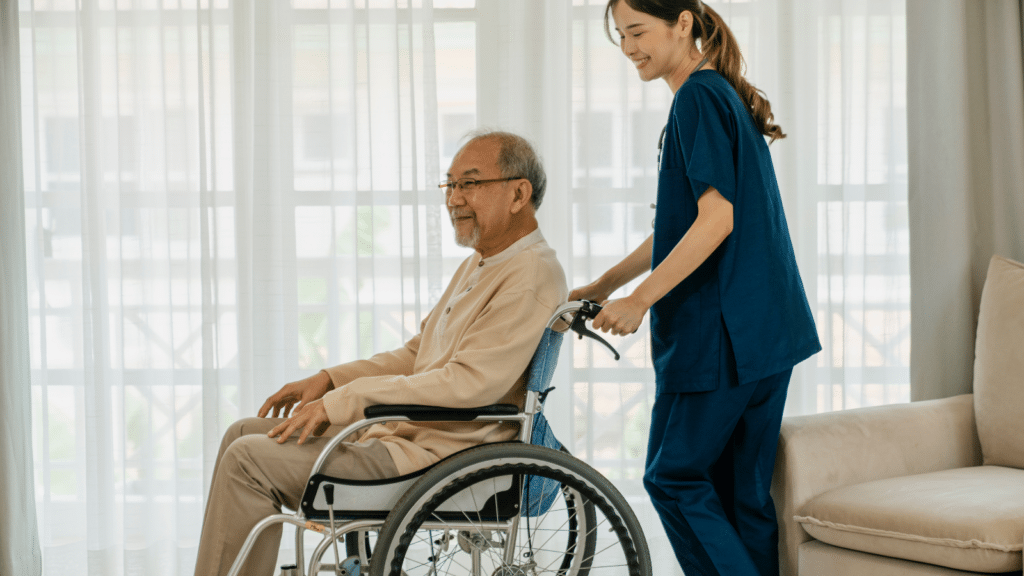As our population continues to age, the diagnosis of Alzheimer’s Disease continues to become more prevalent, but don’t be fooled into thinking that this is just a natural part of growing older. Alzheimer’s is a devastating disease of the mind that is being diagnosed at a rate of 3 million cases in the United States each year. Currently an estimated 6 million Americans are living with this disease, depending upon an estimated 11 million family members and loved ones caring for these patients.
It is for these millions of reasons that Trek is participating in Alzheimer’s Awareness Month and we are reverberating the global message that it’s “never too early and never too late” to take some proactive steps to minimize your risks for Alzheimer’s Disease.
What is the History of Alzheimer’s Awareness Month?
Alzheimer’s Awareness Month began in 2012 as the numbers of individuals diagnosed with this disease steadily increased. The goals of the initiative focused on education, prevention, and support resources for victims of this disease and their caregivers.
What Causes Alzheimer’s?
Alzheimer’s is a neurodegenerative disease that impairs many facets of brain function, including communication, memory, thinking, and the ability to perform cognitive tasks. Scientists are still trying to understand the disease, pointing to numerous risk factors, but no singular definitive cause of the disease. Genetics, environment, and lifestyle all can play a part in Alzheimer’s onset. Because there is much still to learn about this disease, no cure currently exists. Prevention is our best course of action.
How Can We Prevent Alzheimer’s?
You’ve no doubt heard the expression, “An ounce of prevention…” In the case of safeguarding yourself from Alzheimer’s, these ten tips offer your best protection.
1. Maintain a healthy diet of fresh, whole foods.
2. Get regular exercise. The experts at Mayo Clinic recommend a minimum of thirty minutes per day.
3. Keep your mind sharp by learning a new skill or developing a new hobby.
4. Stay connected with friends and family members. Meet together, talk on the phone, and make sure you aren’t isolated from others.
5. Get plenty of sleep The National Institute of Health recommends adults get 7-9 hours nightly.
https://www.alzint.org/resource/world-alzheimer-report-2023/
6. Abstain from or limit alcohol and tobacco consumption.
7. Take hearing loss seriously. If you suspect your hearing may be failing, get evaluated and get hearing aids.
8. Address diet-related health problems, such as obesity and diabetes.
9. Take care of your cardiovascular health. Monitor blood pressure, and if it’s high, take proactive steps to bring it down for good.
10. If you’re struggling with depression, get help.
Even if you do find yourself or a loved one facing Alzheimer’s, do not despair. By taking these healthy living steps, you can slow down its effects and continue to live well for quite some time.

How Can We Support the Caregivers?
Understand that walking through Alzheimer’s with a loved one is a long and slow process of grief. Under the caregiver’s watchful eye, their patient, who is typically a family member, slowly fades farther and farther from the person he once was. The role is emotionally and physically taxing, and the caregiver may be too overwhelmed to know what she needs, much less reach out to you for help.
Make yourself available to the caregiver for emotional and practical support. Listen sympathetically as she shares and processes her difficult role. Offer specific and tangible help, such as watching the patient for a few hours so the caregiver can get uninterrupted sleep or bring over healthy meals. If you’re not sure how to help, ask, but try to at least present 2-3 options of things you are willing and able to do.
Don’t burden the caregiver with extra pressures, such as urging her to put her loved one in a memory care facility. Avoid giving false hope or unsolicited advice. Remember the goal is to lighten the burden, not add to it.
What Resources Are Available?
The Alzheimer’s Association has developed an enormous database of articles, talks, and directory of local support groups to help inform and support those who face Alzheimer’s Disease. Whether you are seeking information about warning signs or want to educate your teens on Grandpa’s condition, you’ll find the tools you need to become fully equipped to face Alzheimer’s.
What are the current treatments for Alzheimer’s?
A few medications are FDA-approved for the mitigation of symptoms, and different medications are preferred based upon the severity of the symptoms. For mild-to-moderate Alzheimer’s, cholinesterase inhibitors can help keep memory and cognitive skills working better longer. For more advanced Alzheimer’s, memantine can prove effective in reducing the severity of symptoms. As is always true before beginning any medication regimen, it’s important to get educated about the potential risks and benefits to you or your loved one.
Quality Care Is Our Business
At Trek Healthcare Staffing, we connect skilled and compassionate medical professionals with opportunities to make a difference in the lives of patients. We support their work through education and awareness, improving the quality of life for all of us. If our mission resonates with you, we’d love to help you advance your medical career. Give us a call today.







